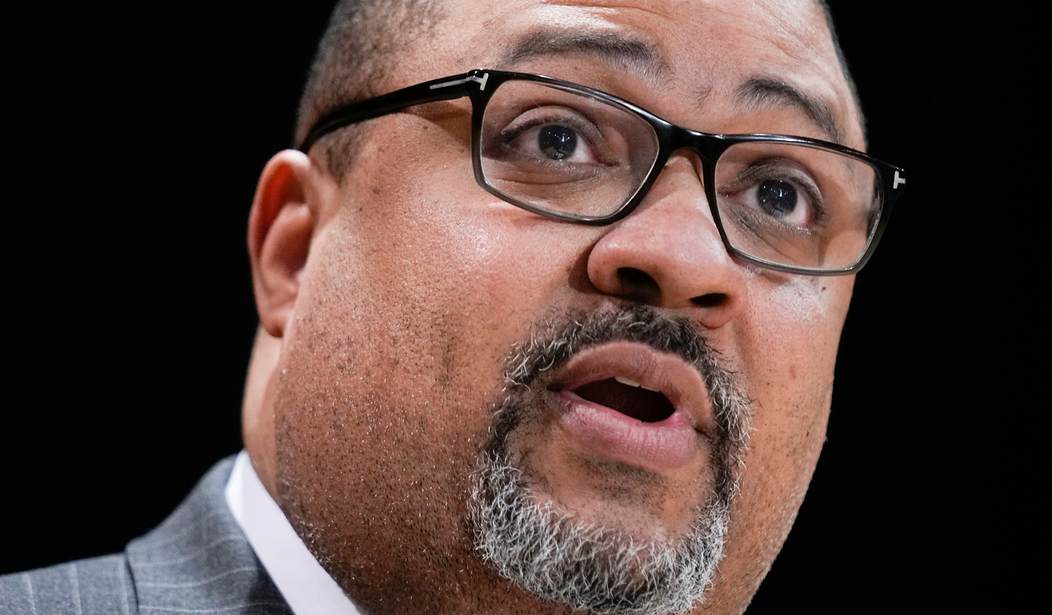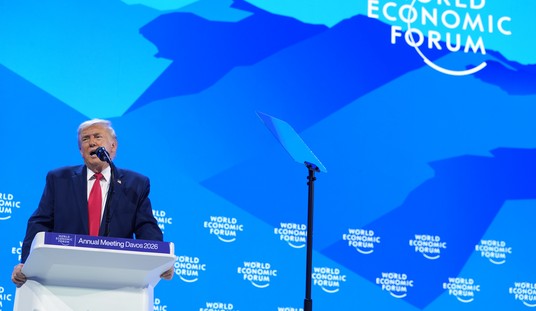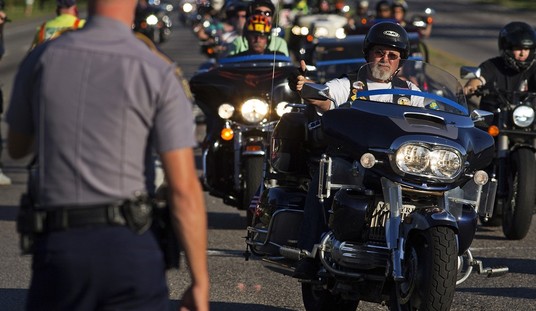District Attorney Alvin Bragg’s case against Donald Trump was always weak if not meritless. But that didn’t stop him from pursuing a felony case for a low-level misdemeanor that normally would have resulted in a fine that was also past the statute of limitations.
Be that as it may, Bragg’s weak case has taken some real hits on Friday, as the testimony of David Pecker, the former publisher of the National Enquirer, has been devastating for the prosecution. In fact, according to George Washington University law professor Jonathan Turley, Bragg’s case is now “collapsing on its own weight."
"They have a witness who was disassembling in front of them,” Turley told Fox News on Friday. "You know, the prosecution never revealed to the jury in the direct that Pecker actually had killed stories for other celebrities that he had been working on stories two decades before the election with Trump that he was suppressing."
This is particularly helpful to Trump’s case because it means that the prosecution can't directly link Trump’s efforts to quash the Stormy Daniels story to the election.
"And now it's only getting worse,” Turley continued. “Yesterday was really bad in terms of the cross-examination for the prosecution. Today is much worse."
Pecker is saying that Trump didn't want to purchase the story. Yesterday he said that when he asked Trump while reimbursing Cohen he said he didn't know anything about that. I mean, we've always — already been complaining about the lack of any recognizable crime here, but there's also a dwindling connection to Donald Trump himself. That is what we're really seeing here is a lot of discussions with Michael Cohen, who's going to give us a really memorable moment when he gets on the stand. He's actually going to look at that jury and say, basically, "Put my former client in jail for following my legal advice."
Turley also said he believes that the defense is doing a very good job.
"I have to say this is collapsing on its own weight,” he continued. "I mean, you just have to stand back and let it fall. I mean, just asking simple questions that the jury would want to know has left serious damage for the prosecution. I mean, these are not strange, tangential questions. These are the questions that you would have expected the prosecution to ask, as just the completion of their line of questioning like, 'Was Trump the only one you did this for?' [and] 'When did you start to do this?'"
Now unless he was trying to get Arnold Schwarzenegger and Tiger Woods elected president—and one of them couldn't be—then the prosecution theory is really becoming something that's easy to mock. I mean ... I just don't understand is how the judge could let this farce unfold in a courtroom, because at the end of the day, he's got to give instructions to this jury. How is he going to instruct them because there is no crime? Is he gonna say that this was a federal election crime? Because it wasn't. And the federal government declined to charge. Trump wasn't even asked to pay a civil fine. So how is he going to give that instruction but if it's not a crime, what are we doing here?
Of course, there’s one significant caveat to all this: the partisan judge and the partisan jury. Will the weakness of the case matter to jurors who just want to convict Trump of a crime? Probably not.










Join the conversation as a VIP Member